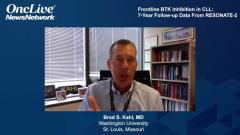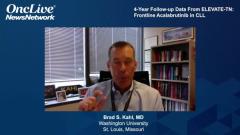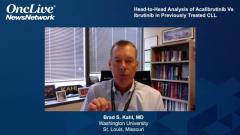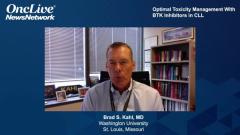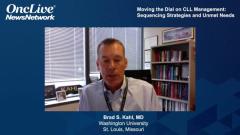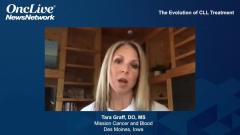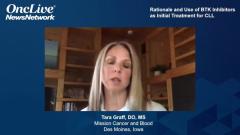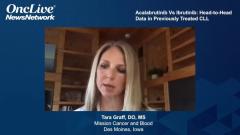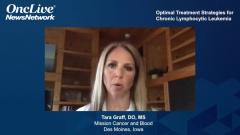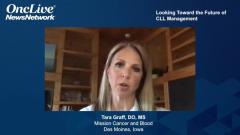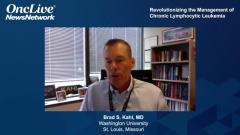
Frontline BTK Inhibition in CLL: 7-Year Follow-up Data From RESONATE-2
Brad S. Kahl, MD, reflects on the 7-year follow-up data from the RESONATE-2 trial, which tested ibrutinib as frontline therapy in patients with CLL.
Episodes in this series

Brad S. Kahl, MD: We’re learning a lot about long-term BTK [Bruton tyrosine kinase] inhibitor exposure from the long-term follow-up from some of the earliest studies. The study that really led to ibrutinib getting a frontline approval in CLL [chronic lymphocytic leukemia] was RESONATE-2. Dr [Paul] Barr reported 7-year follow up at ASCO [American Society of Clinical Oncology Annual Meeting] this year, and there were some interesting things to learn. With 7 years of follow-up, 41% of patients are still taking their ibrutinib. That’s a significant proportion of patients still on treatment. We haven’t had to stop it because of disease progression or adverse effects, so that’s great. Sixty-one percent of patients are still in their first remission, so I guess that means 20% of people stopped the ibrutinib for some reason but are holding their remission, because 41% of patients are still on drugs; 61% of patients are still in remission. It’s great to see those long-term follow-up data to know that for a significant proportion of patients, ibrutinib is well tolerated. There’s ongoing risk for hypertension and atrial fibrillation, but that risk doesn’t seem to be increasing over time; it’s a slow, steady risk. They’re not seeing a whole lot of new toxicity signals, just the old toxicity signals that we already knew about with ibrutinib.
The discontinuation rate for ibrutinib with this long follow-up is about 5% per year. Most of the discontinuations at this point are from disease progression rather than adverse events. In other words, if someone was going to have an adverse event with ibrutinib, they probably would have already had it. It would have declared itself as being intolerable for that patient. If they make it 5 years on the drug, then the odds are they’re going to continue to tolerate it well.
TRANSCRIPT EDITED FOR CLARITY


